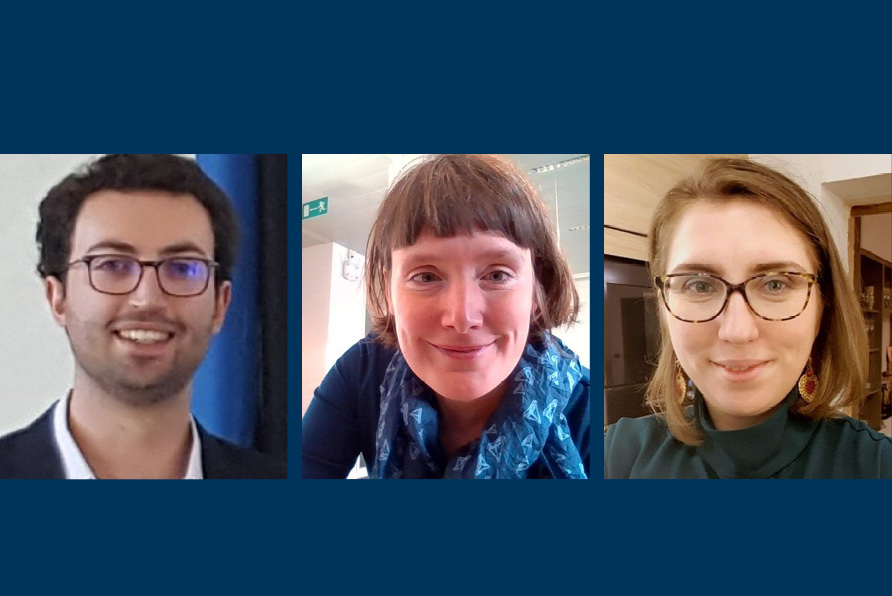Behind the scenes: public consultation on future interoperability policy
Interview with Cristina Cosma, Isa von Kalben and Ruben Narzul, programme managers of the Interoperability Unit of DG DIGIT.
The European Commission is currently evaluating the ISA² programme and the European Interoperability Framework to present a reinforced public sector interoperability policy. We have talked to three programme managers of the Interoperability Unit to learn more about the public consultation and shaping the new policy in a multidisciplinary team. Isa von Kalben has a background in law, Cristina Cosma specialises in IT and the expertise of Ruben Narzul lies in political science.
What does the process of working on the new interoperability policy involve?
IK: We would really like to co-design this new policy as we want to have a process that is as transparent and open as possible and shape a policy proposal by putting together all the input we get. The demand for a new interoperability policy did not come from the political level but from our stakeholders – the Chief Information Officers (CIOs) of the Member States, the open source community, the start-ups working in the govtech sector, among others.
CC: For now we have been working on the future policy for a year and it will last for another two or three years if everything goes well. We will only enter the stage of writing a new regulation or directive after the impact assessment and evaluation is done.
What are the challenges?
CC: There is a lot of and complexity – it’s not like you draft a proposal today, it gets adopted in three months and then you start executing it. It’s not just a project, we are trying to build the future for the next ten years. It is like running a marathon and now we are just at the beginning.
IK: We also need to do a lot of what we call “translation” between IT world and policy world: what is completely obvious and not worth explaining to one side is a mystery to the other and vice versa.
RN: From my point of view, one of the challenges is that digital policies are by nature cross-sectoral. There are different ministries in charge of different digital policies in the Member States and it is the same for the European Commission. DG Connect, DG Grow and DG Justice are all working on digital policies and bringing together all these people with different backgrounds is the most challenging part. In the current COVID-19 crisis it is even more difficult to coordinate.
Why is the future interoperability policy important?
RN: If I may quote Emanuele Baldacci: ‘It is the glue of all other digital policies!’
CC: We make Europe work together at its core – public services work for people, citizens and businesses and deliver added value at the European level.
What will the new policy bring?
IK: I would like the policy to bring a governance framework shared with stakeholders that helps to act together on all issues around digital government driven by the needs of the stakeholders.
CC: More structure and clarity. Today, all policies are digital – employment, health, education, etc. Interoperability is here to connect all sectors and make them work, while also keeping our own values in mind and keeping everything transparent, coherent, fair, and accessible.
RN: Coherence. If the new policy includes a part about shared governance, it could be very strategic. With a reinforced interoperability policy, you can have more power, more levy to implement standards and discuss practical aspects.
Why is it important to participate in the public consultation?
CC: ‘Have your say’ – that is the slogan of the consultation portal. You want to have your say in something that will impact your life. Future interoperability policy will impact how you get access to public services or get healthcare when you’re abroad without going through a difficult administrative process. It’s equally important to citizens, businesses, think tanks and lobbies, because they get to have a say on the future of digital policies.
IK: Citizens and businesses expect public administrations to deliver more. Public consultation can show us what citizens want and what they encounter every day.
What are the next steps after the consultation?
IK: We will discuss the outcome with our Commission colleagues, with the Member States and other key-stakeholders. The outcome of the three supporting studies will be issued by the end of June and our expert group with Member States’ CIOs promised us to give us recommendations by September. We want to present a new policy by the beginning of 2022.
RN: The results of the public consultation will be one of the main documents to shape the new policy together with our policy options and expert group recommendations. These three will be key to convince the college of commissioners to move forward.
Participate in the consultation until 26 April!


